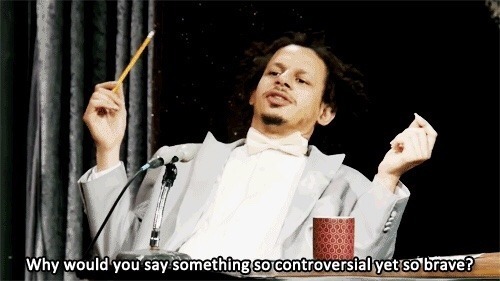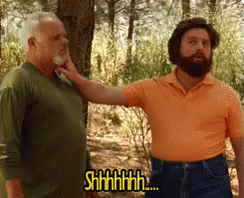Radical Self-Improvement to Radical Self-Acceptance
When I was young, I was marinated in radical self-reliance. I added radical self-improvement for quite a long time, and now I’m done with that too. It’s time for radical self-acceptance.
I’ve been in therapy most of my life, because reasons. I’ve done a lot of hard work to process a lot of hard things. The last half of 2019 pretty much ruined all that therapy and I’ve been in a bit of a mental health crisis the last two years. (I’m sure several of you are grinning and thinking, only the last two years?)
I’ve always worked at self-improvement. Therapy, education, philosophy, fitness…you name it, I was all over it. I always wanted to be a better version of myself, in all ways.
I wanted to fix me, my issues, my trauma, how I view and interact with the world. Many of those who were the source of much of my trauma told me constantly what my failings as a person were, but gosh darn it, I’d fix it.
I’ll be better!
Immune suppression starts tomorrow, and it’s an all day thing of medications dripping into a vein. I feel I’m entering yet another phase of my existence. I’m not freaked out about it, mostly I think I’m relieved that this last two year shitty chapter of my life will be over. I’ve talked before how I’ve struggled with insomnia for the first time in my life because I don’t know how I’ll wake up in the morning. The MS fairy could come in the night and take my sight, or my ability to walk, just like that bitch took my balance and control over my ability to move back in 2019.
Sometimes in that zone between awake and asleep, I get epiphanies or bursts of insight, or solutions to problems I’ve been puzzling over if I just quit thinking about them. I realized one night that I’ve been trying to fix me, and I can’t be fixed.
I’m not broken.
Because I’m not broken. nothing needs to be fixed. Suddenly, I reached radical self-acceptance and felt done with constant self-improvement.

I’m adapted, not broken. I prefer to be by myself or with 4 very close people, for reasons. I’m on high-alert in certain environments, and I have good reason for that too. I trust very few people, and that’s a result, not a cause. Codependence was a way to try to keep myself safe, and it took me years to break the habit, long after I was in a safe environment with safe people. Humour can be an effective way to defuse a situation, and I can be really funny.
Life hack: People are less likely to physically or verbally assault you if you make them laugh.
Drama, especially the self-inflicted kind, is a hard pass for me. The last several years, I cut people out of my life pretty quickly once I suspected that they like to play with matches just to complain they burned their fingers again. I don’t forgive betrayal, and I don’t give second chances. I don’t think that’s a character flaw, despite what others might think.
I’m finally in a place of self-acceptance because any ‘problematic’ personality traits that other people don’t like, are adaptations to environment and experience, and I’m actually fine with them. I got through some things, and I feel complete acceptance of any way I adapted to do that.
People sometimes want to share their opinions about me, with me. Like, I’m too withdrawn or introverted or I don’t like very many people or I don’t socialize enough. The next time someone tries to psychoanalyze or life coach me, I’m going to tell them that I’ve disabled commenting.

I’m about to be 42 years old. I’m a full-on fvc*ing adult and I’m fine.
In fact, I’m pretty proud that I’m not, nor have I ever, been selling myself for crack on the streets because there are definitely some awful roads I could have gone down. I chose self-improvement as my drug instead of other self-medication or self-destruction, and I’m very lucky. There, but for the grace of imaginary dude in the sky, yadda yadda.
I’m not broken. I’m just a product of all my experiences, and there’s not a damn thing wrong with me.
(Except I do probably eat too much cheese, but I fully accept that too.)
One Reply to “Radical Self-Improvement to Radical Self-Acceptance”